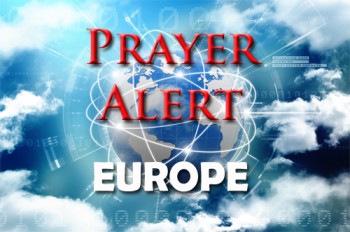Displaying items by tag: arms deals
Iran and Russia strengthening ties
Vladimir Putin visited Iran this week in only his second overseas trip since invading Ukraine. He received a red carpet welcome from Iran’s supreme leader who wants to strengthen long-term cooperation with Russia. Tehran and Moscow are both suffering under Western sanctions. Ayatollah Ali Khamenei praised Putin for ensuring his country had ‘maintained its independence’ from America and said their two countries needed to remain vigilant against ‘Western deception’. Ahead of Putin’s arrival, Iranian officials indicated they could strike weapons deals with Russia. ‘Currently, we are ready to export military equipment and weapons’ said Iran's army ground forces commander. His comments came a week after America claimed Iran was planning to send hundreds of weapons-capable drones to Moscow for use in Ukraine. Meanwhile a Ukrainian missile struck a key bridge linking Russian-occupied Kherson city with the heavily militarised Crimean Peninsula, amid reports Kyiv is preparing to take back captured territory in the South.
Europe’s arms exports to Saudi Arabia
European countries temporarily halted arms exports to Turkey after its military incursion into Syria. But Europe’s other arms trading partner, Saudi Arabia, has caused deaths or injuries of 18,000 in Yemen, where 24.1 million need humanitarian assistance. Despite these figures, EU countries still have arms deals with the Saudis. The UK only halted arms exports in June after exports licences were found to be unlawful. Saudi Arabia was France's second-biggest weapons client last year: over €1 billion worth, including armoured vehicles used in or near Yemen. Only Spain suspended arms exports to Saudi Arabia, citing ‘use of this type of armament against a civilian population’. Why would EU countries halt arms to Turkey due to conflict, but not to Saudi Arabia for the same reasons? There could be several reasons, but two stand out - business and alliances.

